A hotel room maintenance checklist is a comprehensive list, designed to help hotel staff to carry out checks and maintenance work within guest rooms. The checklist covers inspections and preventative maintenance tasks.
These checklists are important because they help to ensure compliance and prevent important tasks from being overlooked. By following procedures, hotels can help to ensure guest comfort and operational efficiency.
In this article, you will learn about what hotel room maintenance checklists are, why they are so valuable, and the best strategies for implementing a checklist and improving standards in your hotel.
Table of Contents:
- What is a Hotel Room Maintenance Checklist?
- Why is a Hotel Room Maintenance Checklist Important?
- The Main Elements of an Effective Hotel Room Maintenance Checklist
- The Key Benefits of a Hotel Maintenance Checklist
- Successfully Implementing a Hotel Maintenance Program
- Best Practices for Hotel Room Maintenance
- Overcoming Hotel Room Maintenance Challenges
- Download Our Free Hotel Room Maintenance Checklist
- The Key Benefits of Smart Hotel Rooms
- The Importance of Hotel Housekeeping
What is a Hotel Room Maintenance Checklist?
A hotel room maintenance checklist is a tool used by staff in the hotel maintenance department to ensure necessary checks and maintenance work are carried out. It helps to ensure key tasks are never overlooked.
When used regularly, a hotel maintenance checklist can prevent many maintenance issues from occurring and can help to address equipment failures quickly. This prevents disruption to guests and can save money on repairs.
Typically, a checklist of this kind will cover areas like plumbing, heating and ventilation systems, equipment and hotel technology. It serves as a step-by-step guide, keeping maintenance staff on the right track.
Why is a Hotel Room Maintenance Checklist Important?
A hotel room maintenance checklist is important because it helps to ensure hotels are carrying out the necessary maintenance work. This, in turn, can keep the hotel operational and the occupants safe.
Hotel management can create a hotel maintenance checklist to maintain the necessary standards for full compliance with rules and regulations. These checks are also vital for creating and maintaining quality standards.
Ultimately, the checklist can help hotels deliver comfort and satisfaction to guests.
The Main Elements of an Effective Hotel Room Maintenance Checklist
An effective hotel room maintenance checklist will include a number of key elements, including:
1. Checking Hygiene and Cleanliness
Hotel room maintenance checklists should include hygiene and cleanliness checks. These inspections should look for dirt, dust, and other signs that surfaces are unclean or contaminated. Staff should consider some of the latest housekeeping trends around cleanliness, so checks may include using tools like UV light to disinfect surfaces.
2. Inspecting the Functionality of Amenities
It is important for hotel staff to inspect the key amenities in guest rooms, including appliances, plumbing and hotel energy solutions. A hotel room maintenance checklist should require staff to make sure lights, radiators, air conditioning units, televisions and other similar items are not only fully functional, but safe to use.
3. Assessing Safety and Security
Hotel room maintenance checklists should encourage the performance of regular safety and security checks. This should include checking electrical wiring, door locks, smoke detectors, fire alarms, and fire extinguishers. These checks can help to maintain guest safety and protect guests in the event of an emergency situation.
4. Evaluating Aesthetics and Comfort
For those in the hotel industry, comfort and visual appeal are major considerations and should be reflected in the maintenance team’s work. Checklists should include evaluations of furniture and upholstery, along with checks for damage or visible signs of wear and tear on walls, ceilings, carpets, and floors.
The Key Benefits of a Hotel Maintenance Checklist
In addition to understanding the core elements of a hotel room maintenance checklist, it is worth taking the time to explore the major benefits of having such a checklist in place.
1. Preventative Maintenance
A hotel room maintenance checklist helps to ensure preventative maintenance measures are in place. These measures can address issues before they occur or before they become significant enough to cause disruption. As a result, those in the hotel industry can minimize repair costs and reduce downtime or situations where rooms are unavailable.
Video: Preventive Maintenance: The Secret to Happy Hotel Guests
2. Improved Guest Satisfaction
Maintenance efforts can also have a direct bearing on guest satisfaction, which is largely predicated on rooms being clean, tidy and safe, and on room features being available and fully usable. Adopting a checklist can help to ensure as many guests as possible get to enjoy a pleasant stay in your hotel and enjoy smart room features.
Successfully Implementing a Hotel Maintenance Program
There are a number of important steps for senior figures in the hotel industry to follow when implementing a hotel room maintenance checklist. In the following sections, you can explore the main prerequisites.
1. Frequent Training and Staff Engagement
Hotel maintenance staff need to regularly participate in high-quality training activities. These sessions should emphasize the importance of using checklists and encourage staff engagement with actually drawing up the checklists.
2. Using Technology to Optimize Efficiency
Digital checklists make it easier to share information and real-time progress updates. Communication technology can also be used to ensure checklists are being used appropriately and any issues are reported swiftly.
3. Creating a Preventative Maintenance Schedule
Your hotel room maintenance checklist should include proactive measures that address problems before they occur, or fix minor issues before they become more disruptive. This avoids downtime and reduces repair costs.
Video: Features Maintenance Planning and Scheduling Excel Template
4. Adaptation and Continuous Improvement
The hotel room maintenance checklist should be a living document, which is continuously improved and amended over time. These improvements should be based on legislation, regulations, hotel trends, feedback and experience.
Best Practices for Hotel Room Maintenance
To create a successful hotel maintenance policy in the hotel industry, it is important to adopt best practices. These best practices can inform the creation and implementation of a hotel room maintenance checklist.
- Defined Roles: Clearly outline the responsibilities and job roles of each employee involved with hotel maintenance efforts and create a hierarchy of accountability.
- Reporting Procedures: Establish a system for reporting maintenance issues, so problems can be addressed quickly and disruption to guests can be kept to an absolute minimum.
- Quality Control: Put steps in place to ensure maintenance teams are meeting the required standards. This may mean inspecting maintenance logs and carrying out random inspections to ensure tasks are being completed.
- Sustainability: Place a premium on sustainability and eco-friendly maintenance methods. This may include using energy-efficient lighting and electronics, using sustainable cleaning products and more.
- Continual Improvement: Ensure your hotel maintenance checklist is continually updated to reflect the latest trends, emerging technology, safety legislation and the needs and expectations of customers.
- Performance Evaluations: Assess the performance of team members engaged in the maintenance process, including the use of periodic evaluations, in order to ensure standards are met and any skills gaps are addressed.
- Preventative Maintenance: Take steps to prevent problems from occurring in the first place, keeping disruption and costs to a minimum. This is especially important with heating, plumbing and essential amenities.
Overcoming Hotel Room Maintenance Challenges
While a hotel room maintenance checklist can help to keep your team on the right track, there are a number of important challenges that need to be overcome to optimize maintenance efforts in the hotel industry.
- High Staff Turnover: Provide the necessary training so staff can perform their job to a high standard, offer career progression opportunities and make sure new recruits are onboarded efficiently and effectively.
- Time Constraints: Utilize communication technology and hotel room maintenance checklists to maximize productivity and to optimize the workflow of maintenance teams.
- Technology Integration: Invest in new technology, including smart hotel options. Provide training around usage and prioritize solutions that improve operational efficiency or reduce human error.
- Budget Limitations: Embrace the idea that prevention is better than cure and take steps to stop major issues from occurring. Address problems quickly and minimize disruption to hotel operations.
- Seasonal Fluctuations: Ensure the hotel is sufficiently staffed to contend with peak periods.
- Environmental Concerns: Use eco-friendly methods and cleaning products, and embrace sustainable energy.
- Guest Privacy: Create a workflow that focuses on accessing rooms when guests will not be disrupted. Make sure processes are in place to avoid intruding on guests during their stay whenever possible.
Download Our Free Hotel Room Maintenance Checklist
This checklist can be printed out and used daily by housekeeping and maintenance staff. It ensures that all critical aspects of room maintenance are regularly checked and addressed, helping to maintain high standards of quality and guest satisfaction.
Remember to adapt this checklist to your hotel’s needs, potentially adding or removing items based on your unique amenities or brand standards. Regular training on using this checklist effectively will help ensure consistent room quality across your property.
Download the hotel room maintenance checklist below as a Word document (Adjustable).
–
Download the hotel room maintenance checklist below as a PDF document.
The Key Benefits of Smart Hotel Rooms
A hotel room maintenance checklist can be made more efficient through the adoption of the smart hotel room concept. Smart hotel rooms make use of ‘smart’ technology, powered by the Internet of Things, allowing devices to transmit valuable data to one another. This can make it easier to diagnose problems in a timely fashion.
In the “Smart Hotel Room; What Are the Benefits for Hotel Owners and Guests” article, you can learn about what smart hotel rooms are, how they are defined, what their common features are and how they can be advantageous.
The Importance of Hotel Housekeeping
Hotel room maintenance checklists are primarily useful to the maintenance department, but there may be significant crossover with housekeeping staff. The housekeeping team is one of the most important departments in the hotel industry and is responsible for keeping the hotel clean, tidy, comfortable, and presentable.
In the “Housekeeping Department in Hotel Businesses: Why Is It So Important?” article, you can learn more about the specific duties of the housekeeping team and learn why this department is so valuable.
Did You Like This Article about Hotel Room Maintenance Checklist?
You might also be interested in the following articles:
- Hotel Maintenance Tips to Optimize & Increase Profitability
- Hotel Room Cleaning Tips for Meeting & Exceeding Guests’ Expectations
- Room Attendant Guide; Meaning, Job Description, Duties & Technology
- Hotel Housekeeping Guide: Tips & Tricks to Clean Your Hotel
- Housekeeping Duties: Main Responsibilities of a Room Attendant
- Maintenance in the Hospitality Industry: Best Practices and Tips
A hotel room maintenance checklist is a valuable tool for ensuring standards are upheld, and guests have a positive stay on your property. By following a checklist, the maintenance department can ensure all of the necessary tasks are completed, nothing is overlooked, and preventative maintenance is achievable.
More Tips to Grow Your Business
Revfine.com is the leading knowledge platform for the hospitality and travel industry. Professionals use our insights, strategies, and actionable tips to get inspired, optimize revenue, innovate processes, and improve customer experience.Explore expert advice on management, marketing, revenue management, operations, software, and technology in our dedicated Hotel, Hospitality, and Travel & Tourism categories.
This article is written by:
Hi, I am Martijn Barten, founder of Revfine.com. With 20 years of experience in the hospitality industry, I specialize in optimizing revenue by combining revenue management with marketing strategies. I have successfully developed, implemented, and managed revenue management and marketing strategies for individual properties and multi-property portfolios.

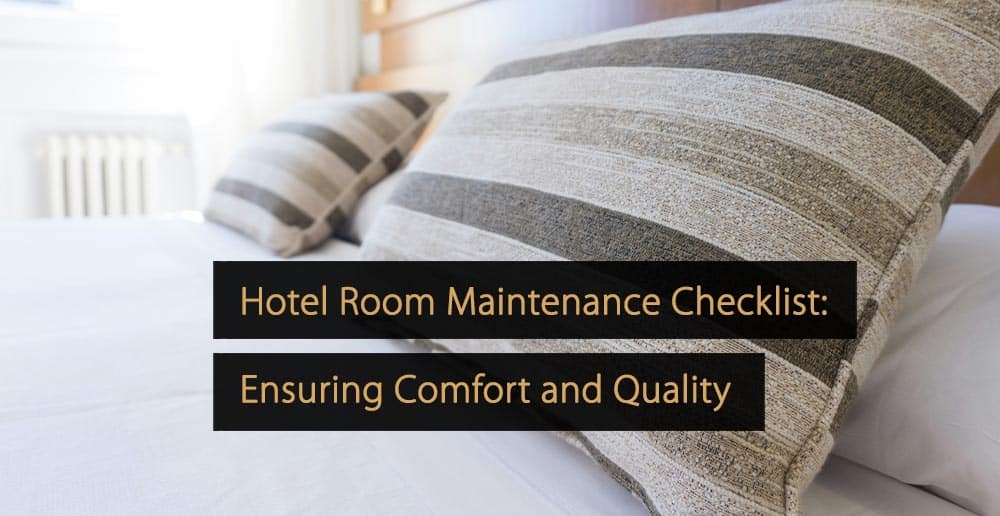
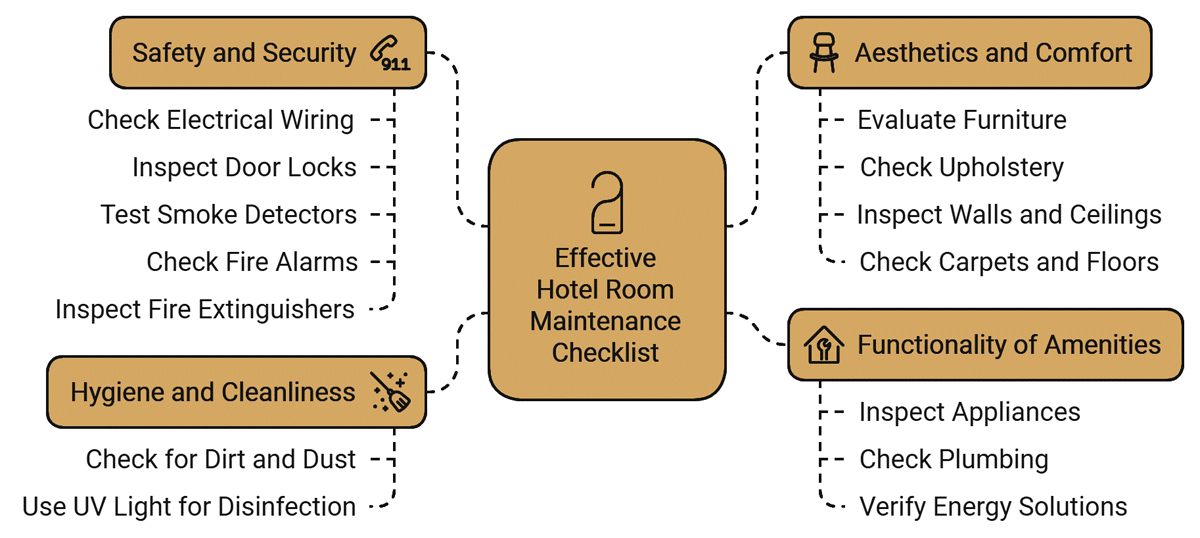
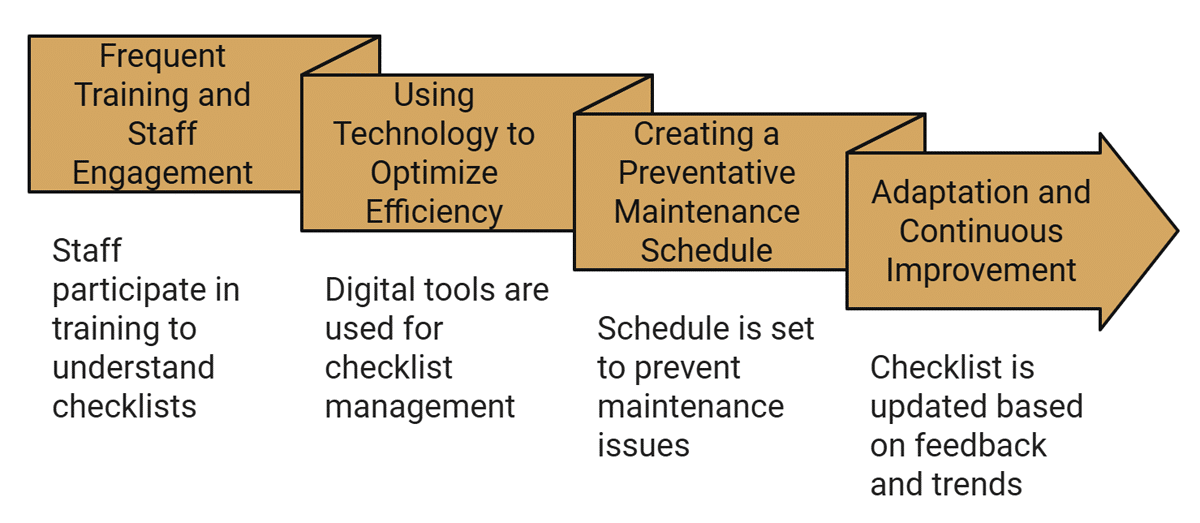


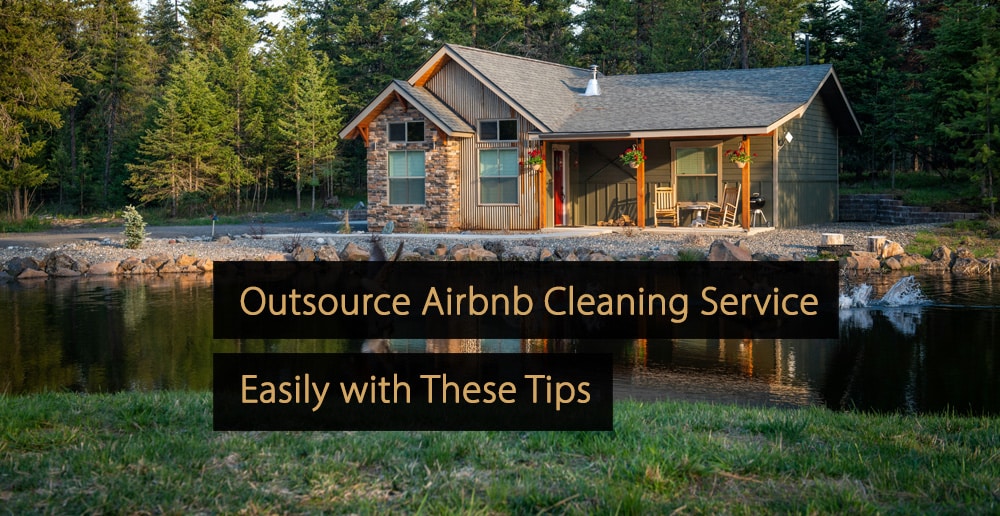
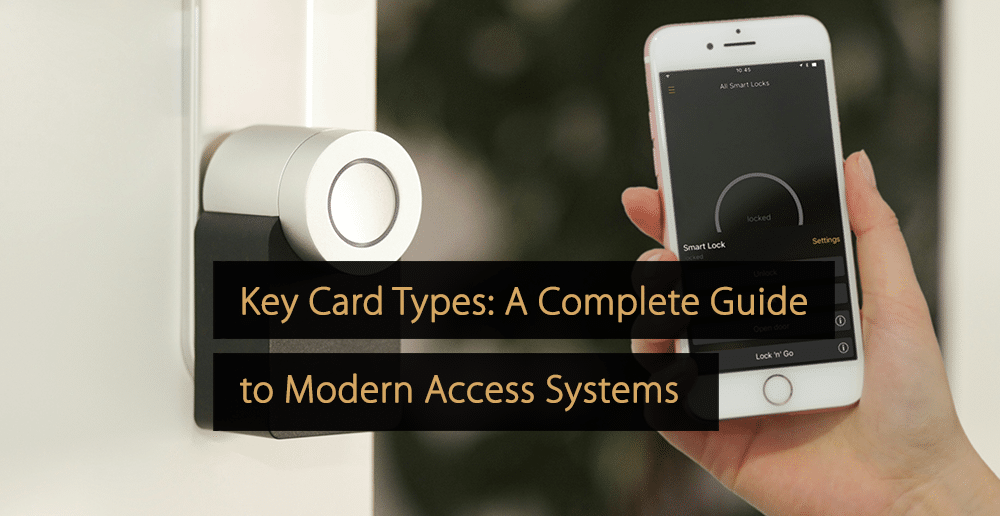
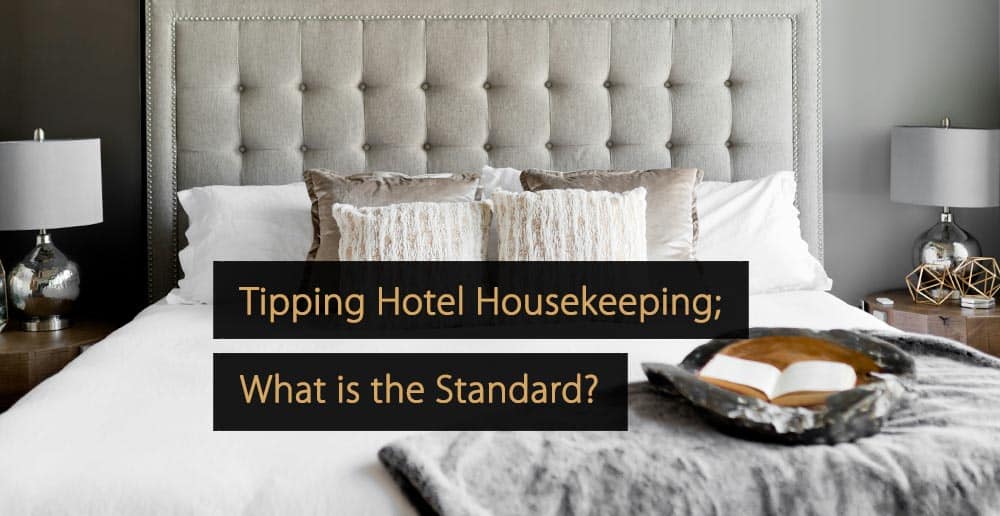

Leave A Comment